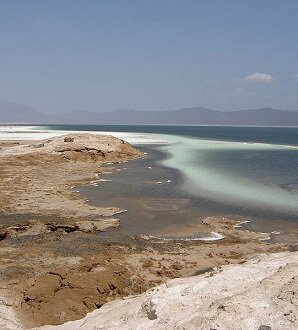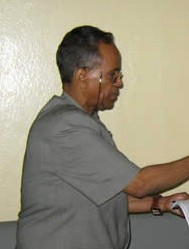 Bartamaha (Djabuti):- With power consumption steadily rising, also through new businesses opening in Djibouti, electricity production remains erratic and causes increased outages. Government desperately seeks investors, new documentation reveals.
Bartamaha (Djabuti):- With power consumption steadily rising, also through new businesses opening in Djibouti, electricity production remains erratic and causes increased outages. Government desperately seeks investors, new documentation reveals.
In a US Embassy cable from June 2009, recently published through Wikileaks, the Ambassador notes large investment possibilities for US companies in the small African Horn country. Several Djibouti officials, including Minister of Energy Moussa Bouh Odowa, had called for foreign assistance to invest in electricity production.
Djibouti was struggling with “a widening gap between electricity demand from consumers, and a constrained supply of expensive, diesel-generated electricity provided by the national electricity company,” it was noted. Government realised it needed improved supplies of lower-cost energy to maintain economic momentum and meet the basic needs of ordinary Djiboutians.
Djibouti’s parastatal electricity monopoly Electricity of Djibouti (EDD) in 2009 officially had an installed capacity of 100 megawatts, but the company’s “realistic production capacity is much lower – closer to 47 MW,” the Ministry of Energy admitted.
The EDD was seen as capable of sustaining a short-term “surge” in production to 60-70 MW, but not for prolonged periods. Summertime demand – when Djibouti’s hot season leads to greater air conditioner use – was in 2009 set at 87 MW, leaving a significant gap between production and consumption needs. Furthermore, already for 2010, the Ministry projected that Djibouti’s energy needs would reach 125 MW or even higher, as the country was attracting large-scale foreign direct investment projects.
Meanwhile, Djiboutians were experiencing more and more frequent power outages. The worst situation was experienced in May 2009, when Djibouti City experienced multiple, prolonged power cuts of up to 9 hours a day.
During the last years, Djiboutian authorities had tried to attract investors to its considerable renewable energy resources, focusing on geothermal, wind and solar energy projects. But Djibouti lacked both knowledge and capital to develop these resources.
In particular, a planned 50-100 MW Djibouti-Iceland geothermal plant at Lac Assal was frustrating government. Not only did Minister Bouh Odowa distrust the Icelandic investors following the financial crisis, he revealed to the US Ambassador, but the Icelanders were also acting in an undiplomatic way, with “errors of protocol and communication.”
The Djiboutian Minister said he was not as confident that Iceland had the full US$ 25-30 million available to fund the Lac Assal project feasibility phase. The Icelanders had agreed to cover 35 percent of the Djibouti project’s exploration costs, which would lead to the largest-ever energy project in the country.
Minister Bouh Odowa revealed that he would be very interested in getting further investors than the Icelanders into the project – and other renewable energy projects – to make sure Djibouti could increase its energy production quickly. He would even offer a higher Djiboutian government participation in such investments.
Meanwhile, the Icelanders a few months after the US report managed to produce the awaited feasibility report, including the expensive deep wells drilled in the Lac Assal region. The report had a generally positive evaluation of the geothermal power project.
But little else has been done to increase Djibouti’s energy production since the 2009 report. Djibouti still desperately looks for new investors into its large energy production potential.
 |
|
Djibouti Energy Minister Moussa Bouh Odowa |
| © Hydrocrabon DCPL/afrol News |
===============
Source:_ Afro News-Djabuti



